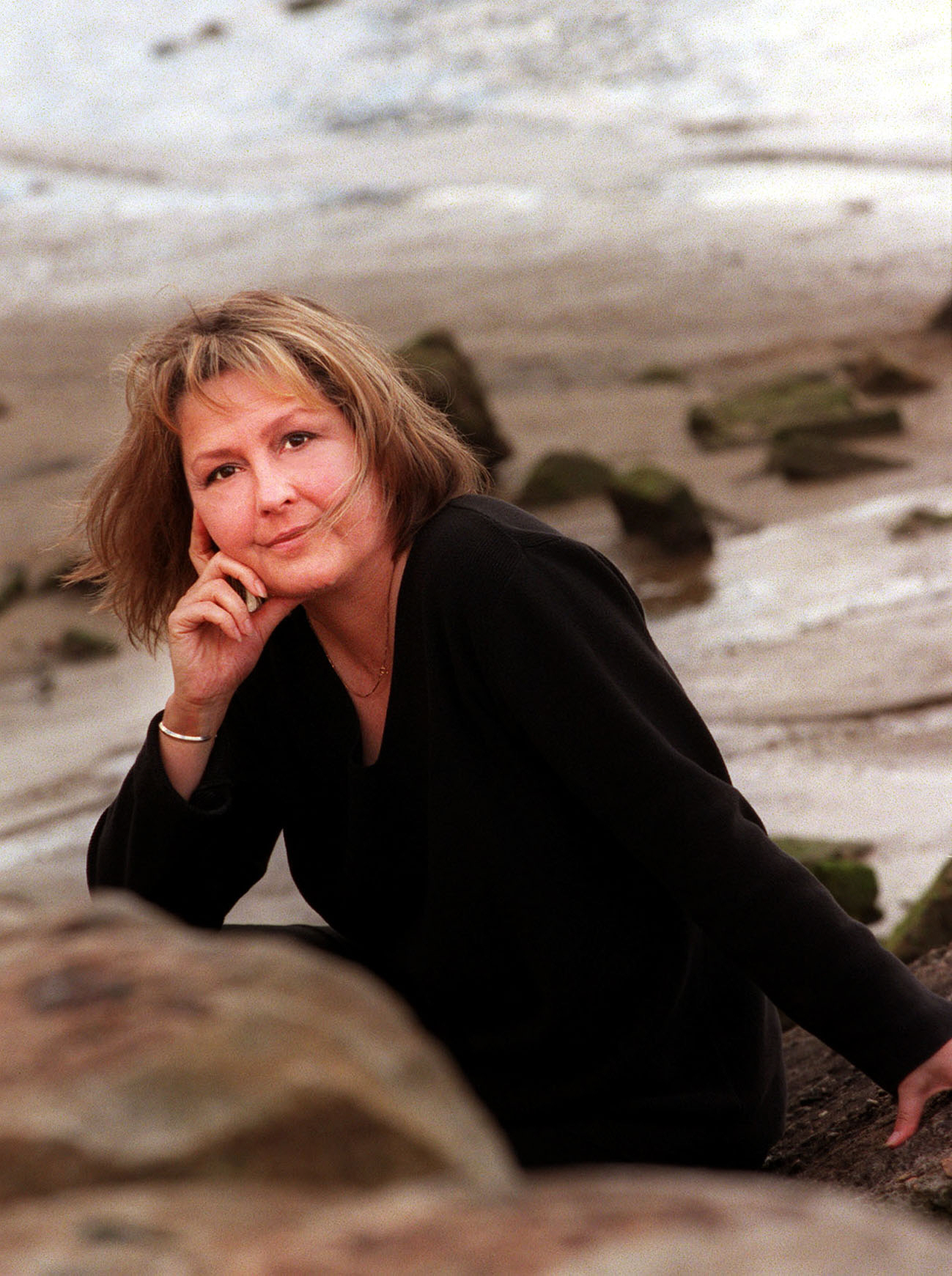 ElizabethBryer’s writing has appeared in HEAT,harvest, Kill Your Darlings and VerityLa and has been broadcast on ABC Radio National. In 2011 she was runner-upin the Wildcare Tasmania Nature Writing competition and shortlisted for theSouthern Cross Literary competition. She blogs at Plume of Words.
ElizabethBryer’s writing has appeared in HEAT,harvest, Kill Your Darlings and VerityLa and has been broadcast on ABC Radio National. In 2011 she was runner-upin the Wildcare Tasmania Nature Writing competition and shortlisted for theSouthern Cross Literary competition. She blogs at Plume of Words.
Not Here, Not in Our Town
I squat beside my mother, who has her skirt bunched around her pale knees. I peek at the strong stream making the thudding noise, peek at the little shallow it drills into the ground and the river it sends running away. A grassy scent fills my nostrils.
To the north—across the yard and, beyond that, the paddocks—a warm glow backlights Mount Wellington and Ben Croachen. Mum is watching the radiance. When I giggle about how just now Scruff was chasing his tail round and round until he bumped his head on the verandah pole, the only reply I get is ‘Mmm’.
I try to do as Mum is doing but mine sprays everywhere: on my shoes, my bare thighs. It raises a little dust that sticks to the damp parts of my legs and it is squishy in my knickers when I pull them up and walk away. Scruff bounds over to where we have been, sniffs and cocks his leg.
The wheelie bins are filled with water, parked in parts of the yard where the hoses don’t reach. The dry grass has been mown down to the dirt and the sprinkler is on. Its jerky tit-tit-tittering usually means I can call over the kids from next door, but Mum’s shoulders are set squarely today so I hold in the urge to yell out to them.
I follow Mum to the car. ‘To Nanna’s’, she answers my ‘Where are we—’ as she puts an arm behind the passenger seat and cranes around to reverse out the driveway.
We go slowly. The route into town lead west and, briefly, south, so for most of the trip Mum glances out her window, and then she glances at the rear-view mirror. My legs stick to the vinyl and the rolled-down windows aren’t doing much to relieve the dry heat; it just gets blown around a bit. The trees rush by, the paddocks pass slowly and the mountains keep abreast of us. My eye is drawn to the glow; it creates a feeling inside me I don’t know how to name. It quietens my thoughts.
I race up Nanna’s drive and rap on the door as I kick off my shoes. When she lets me in, it’s with a hug that lasts a few beats longer than usual.
The kettle rattles gently as Nanna transfers some coconut slice from an ice-cream container to a blue-willow plate. The jam is sweet and the coconut, aromatic. Mum and Nanna murmur to each other so I make sure to chew quietly. The kettle whistles a while before Nanna breaks the murmurs to place palms flat on the table, push herself up and go turn off the gas. She switches on the wireless after she has poured the water into a teapot and retrieved three floral mugs from the vitrine. She stays standing at the bench while she waits for the tea to steep, head cocked towards the crackly male voices, the mugs lined up before her like squat, jolly friends. I’ve never known Mum and Nanna to be so hushed.
The tea is sweet, just as I like it, and I stand to reach for another slice. When Nanna’s mug is empty, she smooths a fold crease in the tablecloth over and over. Later, her right hands gathers the crumbs from her slice into a little pile, brushes them off the edge of the table into her cupped, waiting left hand, and then dislodges them from her palm into her drained mug.
The plate is almost empty, its pattern visible: the twirling doves, the floating land, the strange house drawn in curly and sharp lines. I wonder where the people on its bridge are headed.
Mum’s eyebrows are drawing towards each other, pushing vertical crinkles into the place between them.
‘Another?’ asks Nanna, and Mum nods.
‘Of all the days for there to be a northerly.’
Nanna sticks the kettle spout under the tap. ‘It’s all the waiting, isn’t it,’ she says, just loud enough to carry over the gush of water and the static-spiked voices. ‘The waiting’s what’s so unsettling.’
She lights the front-right burner again, sets the kettle atop it, comes back to the table. Suddenly the wireless drone is clear as day: two just-voiced syllables together form the name of our town. Mum’s hand goes to her mouth; Nanna gets up again and twists the volume knob.
Nanna stands, Mum sits, they both are perfectly still, and both look at the wireless. A fly is battering itself against the window, vibrating upwards until it falls to the sill and starts all over again. Mum speaks first.
‘The sprinkler,’ she says, and I know she means she can’t remember turning it on. My pulse quickens.
‘You did!’ I tell her, ‘I saw it going.’ She looks at me a moment, looks to Nanna. Finally: ‘No, the one on the roof, Sweet Pea. I mean the one on the roof.’
She is a flutter of movement, then; Nanna is talking at her sternly but Mum is brushing her off and kissing me and telling me to be good and that she’ll be back in a jiffy. She grabs the keys and pulls the door shut behind her. A stone settles in my stomach.
Nanna and I go out into the yard when someone turns out the daylight. A grey, rolling haze is drawing across the sky and has put out the sun, which I look at without hurting my eyes; it’s a red circle. It’s only one o’clock but night has come early. ‘No it hasn’t,’ says Nanna, looking up, as I am looking up. ‘It’s a smoke cloud.’
Everyone must be outside like this, faces turned to the sky. There are no birds, but I imagine what it would be like for one looking down: all the coloured dots that are people in their rectangles of yard. Soon, the smoke cloud stretches so far that it blots out the horizon right round until there is only this town, this house; nothing else. There is no bush, no mountains. They don’t exist.
Grey flakes drift over us, buffeted to and fro, heading always downward. They settle on the plants, the lawn, Nanna’s curls, my shoulder. I try to brush them off but they disintegrate under my touch, smudging across my sleeve and darkening my fingertips. The wind pulls at our clothes and soon Nanna is pushing me before her, up the ramp and inside.
‘There’s flying embers,’ she tells me, her breathing quickened, once she has pulled the door shut behind us. I look out, wondering what she means, and see them: red and orange glows that are dropping onto the grass and turning black. I ask if they could start a fire. ‘They could,’ she says. I ask if they could burn down the house. She doesn’t say anything. I look at her and she tells me be a good girl and sit quietly.
‘Could the fire come here?’ Something passes over her face, settling her features into a tired arrangement, until she sighs and says, ‘It could; it’s headed this way’. She says it in the flat voice I’ve only ever overheard adults using with each other.
I think of the times the newsreaders have intoned scary things into our lounge room: the people gone missing, the bashings, the murders. I think about how, whenever I see the images flickering across the screen, the world contracts and rushes into a cold spot inside me and my senses grow sharp. But after, I ask Mum, ‘Do those things ever happen here?’ and she smiles as if it’s a silly question, saying, ‘No, Sweet Pea, not here, not in our town’, and warmth floods me again.
I think of Mum, out at our house while the fire rages towards us, and blink quickly.
‘Hey,’ says Nanna. ‘Hey, hey. Tell you what, we’ll be more than ready for lunch by the time your mum gets back; want to help me make some egg-and-lettuce sandwiches?’
I take a jagged breath and nod tightly.
She sets a pot of water on the stove to boil and has me retrieve three eggs from the fridge. Once she has plopped them into the water, she overturns the hourglass on the windowsill and tells me to keep a close eye on it. The sand seems to trickle so slowly, and then when I stop looking at it for a moment it’s done; I tell Nanna in a rush and she transfers the pot to the sink and runs cold water into it.
She chops lettuce, then, and has me butter the bread. She doesn’t let me help shell the eggs because they’re still hot; when she’s done, she puts them in a bowl with a knob of butter, some milk, pepper and salt, and I get to mash them with the fork. We spread the egg and lettuce across the bread, top each square with another slice, and then Nanna cuts them into triangles, sets them on a long plate and covers them with gladwrap. She glances at the clock.
Once again there’s nothing to do. The presence of the wireless grows to fill the room, to push us into the corners. The creases in Nanna’s face have been dragging downwards over the past hour or so, and now she says ‘Come here’ and presses me to her, her hand cool and dry against my cheek. ‘Everything’s going to be okay,’ she murmurs, barely aloud, barely to me.
The backyard is speckled grey, and the wind blows from all directions. By three o’clock, Nanna has removed the gladwrap. We sit at the table, transfer sandwiches onto our bread-and-butter plates. When I’ve finished, Nanna says, ‘Good girl’. She hasn’t touched her share, but she clears both plates all the same.
The wind rushes at the house, battering the door until it bursts open and the wind spills inside, tumbling Mum in with it, her clothes and face smudged with soot. Nanna drops the plates into the sink with a clatter. She is looking in Mum’s direction and is holding herself very still. Then she drops her head, gazes at the dishes; Mum hurries over to her, says she’s sorry, hugs her straight shoulders until they droop and she turns towards Mum.
She tells us of the embers everywhere, of Scruff cowering under the house, of grass and debris catching alight, of tying a scarf across her nose and mouth and plunging the mop into the wheelie bin to douse the embers like a madwoman; ‘Like a witch,’ I say, and she tousles my hair and laughs, ‘Yes, a witch, a mop-riding witch.’
Later, while Mum is in the bathroom scrubbing the soot from her skin and hair, Nanna says to me, ‘Don’t ever put your mum through the things she puts her old mother through, will you?’ I don’t know what she means but I nod, knowing that my nod is expected, and that it’s important.
As the afternoon deepens towards evening, the day grows lighter. The newsreaders tell us that the fire front has swung away, that it is bearing down on towns east of here. At nine thirty, Mum tucks me into bed. It’s still light out. I watch a strip of brightness thrown across the ceiling. It’s entering the room through the space between the curtain and the upper reaches of the window, and whenever one of the trees blows a certain way the strip changes shape, contracts.
A dream thrusts me awake and sends tingles through my body. It takes a moment for me to realise where I am, but still I can’t shake the terror that sits fatly in my chest.
The digital clock blinks 3:27. There’s a hum coming from the kitchen, a rise and fall that tricks me into losing my bearings again until I realise it’s coming from the wireless. I hear a creak and understand that someone’s shifting her weight on one of the kitchen chairs.
I don’t know what’s worse: staying here alone or feeling my way through the dark. Eventually, the thought of someone else on the other side of that dark pulls me out of bed. It’s Mum sitting there, head bent towards the wireless; its volume is low.
The linoleum is cool on my bare feet; I pad to her and she takes me into her arms.
‘What’s wrong, Sweet Pea?’
The dream is still real; I press my face into her shoulder.
‘Did you have a bad dream?’
I nod, and she feels me nodding.
‘What happened?’
I still can’t transform the terror into words. She sits with me, starts rocking a little. She’s warm and soft and present, proof of the dream’s deceit.
‘Did I die, did I?’
Now that she’s said it, the weight in my chest subside a little. I nod tightly and she sighs, ‘Oh, Sweetheart,’ and hugs me closer. I breathe deep the moisturiser that lifts off her skin, notice her hair tickling my forehead, her necklace imprinting my cheek. The familiarity of these things make me want to believe, as she starts to promise, that she’s right here, that she’s not going anywhere, that nothing’s ever going to happen to her or to me or to anyone else, so I concentrate on them and try my best to remember how it was that I was always persuaded.








